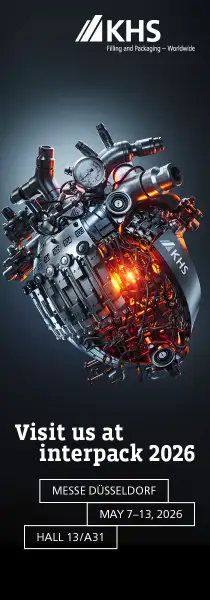Key takeaways
- Coveris and SABIC unveil the first closed-loop recycling system for medical packaging.
- Non-contaminated hospital waste is transformed into new sterile pouches.
- The project demonstrates that circularity in healthcare packaging is achievable.

Coveris has teamed up with SABIC and other partners to launch the first closed-loop recycling project for medical packaging.
The partnership uses SABIC’s Trucircle initiative, which turns hospital waste back into high-quality, contact-sensitive packaging.
Khaled Al-Jalawi, global circular economy director at SABIC, says, “We are excited about this pioneering circular business model pilot, which showcases the potential of circular plastic innovations when leading actors from across the medical ecosystem collaborate closely.”
“Non-contaminated medical plastic waste represents a valuable feedstock opportunity, and SABIC Trucircle solutions could play a major role in advancing circularity in healthcare.”
The project began in 2024 when Zuyderland Medical Centre in the Netherlands introduced a new waste collection system that collected non-contaminated plastic waste for SABIC to process into its Trucircle PE.
Coveris Halle then extracts film from SABIC’s PE resin, and Coveris Rohrdorf converts the film into sterile pouches, which are then delivered to healthcare brand Artivion as packaging for its vascular surgery guidewires.
Jan-Willem Bruijsten, segment director medical at Coveris Group, says: “At Coveris, we see collaboration as key to a circular future, and we are extremely proud to be part of this pioneering initiative.”
“It proves that circularity in healthcare packaging is possible. The project fully echoes the core values of our No Waste vision. This partnership is a perfect example of how we can make a meaningful impact by joining forces.”
No Waste vision
Coveris explains that the closed-loop system demonstrates that “systemic innovation” and “strong partnerships” can reduce waste in the healthcare industry. Its No Waste vision aims to avoid product waste across all sectors, not just pharma.
In an interview with Packaging Insights, Coveris’ Jan-Willem Bruijsten noted a shift toward sustainability in the pharmaceutical industry, not just for cost reasons. Companies are increasingly exploring recyclable and monomaterial solutions.
“The industry recognizes that healthcare packaging must protect and reduce its impact. We’re seeing increased demand for recycle-ready designs, downgauged materials, and overall smarter use of resources.”
Pharma waste
According to Coveris, around 1,700 metric kilotonnes of non-contaminated PE and PP medical waste are incinerated annually in Europe. This highlights that the healthcare industry has to prioritize sterility and patient safety, making circularity difficult to implement.
Recently, a report warned that single-use plastics in the healthcare sector, often exempted from broader policies, are driving up costs, waste, and GHG emissions.
Pharma packaging developments have included MM Group’s fully coated virgin fiber cartonboard with a cream reverse side (GC2), showcased at FachPack 2025. At the tradeshow, we spoke to Mariusz Euskirchen, MM Group’s key account manager for molded pulp.
He commented: “This GC2 board has a nice surface smoothness for high-end and demanding print drops, targeting the OTC sector and the pharmaceutical industry, where you need vignette colors and full ink coverage.”











